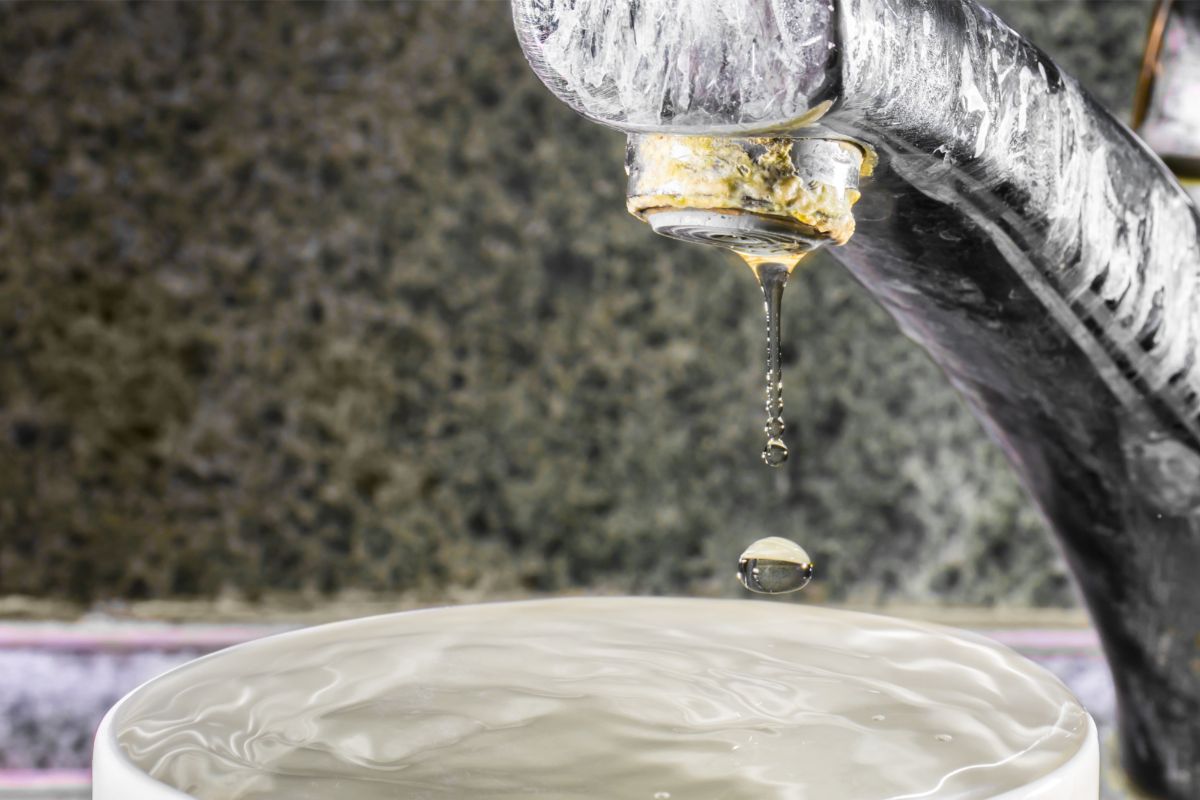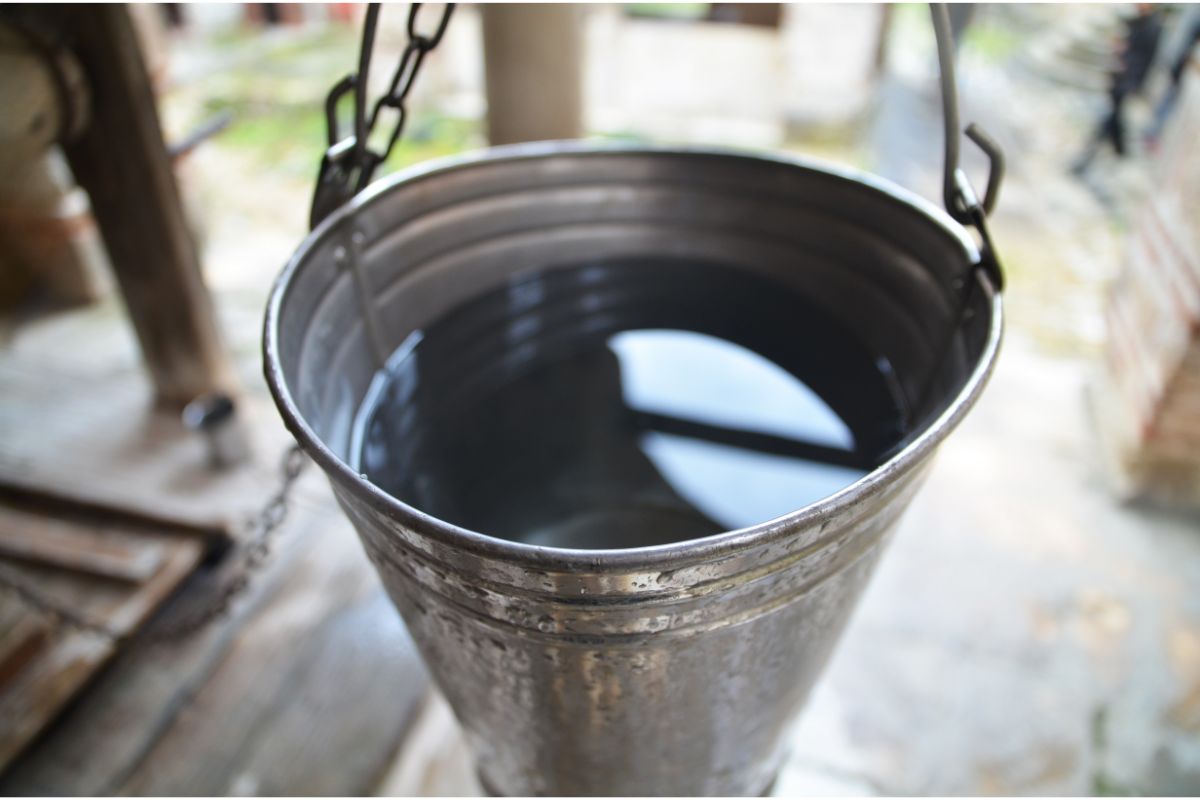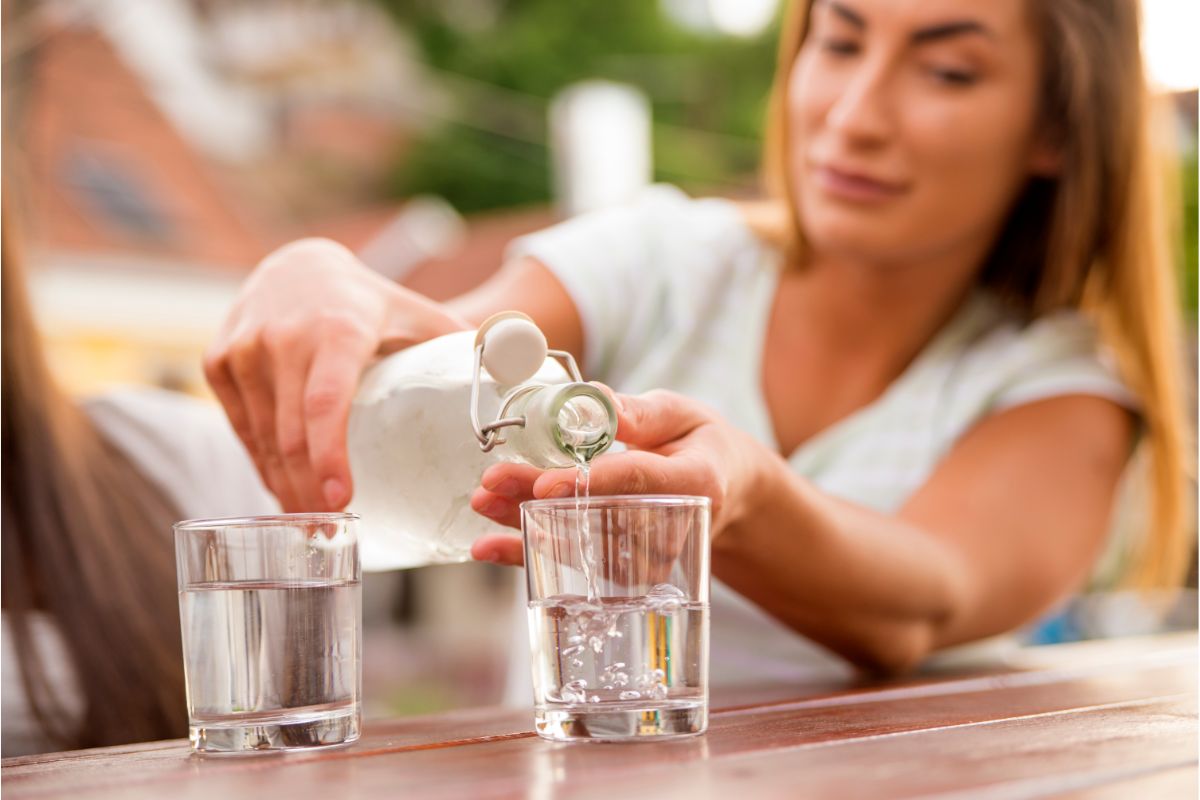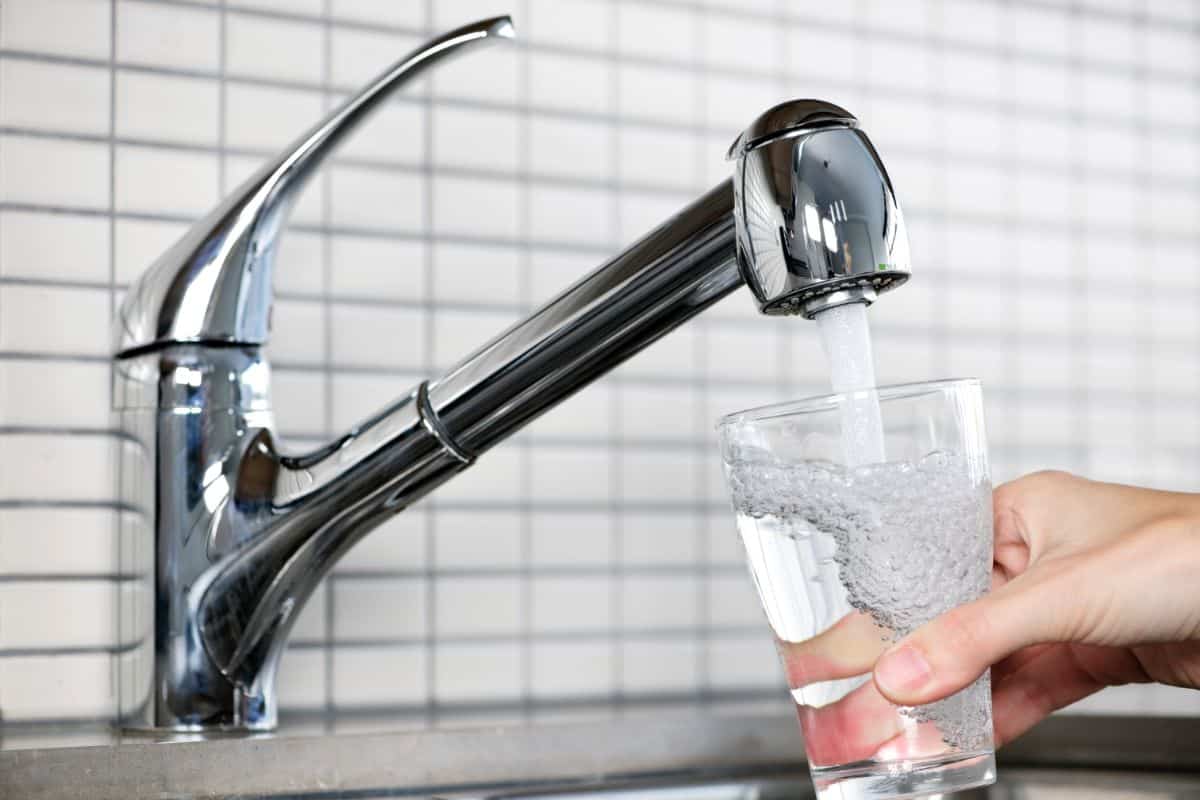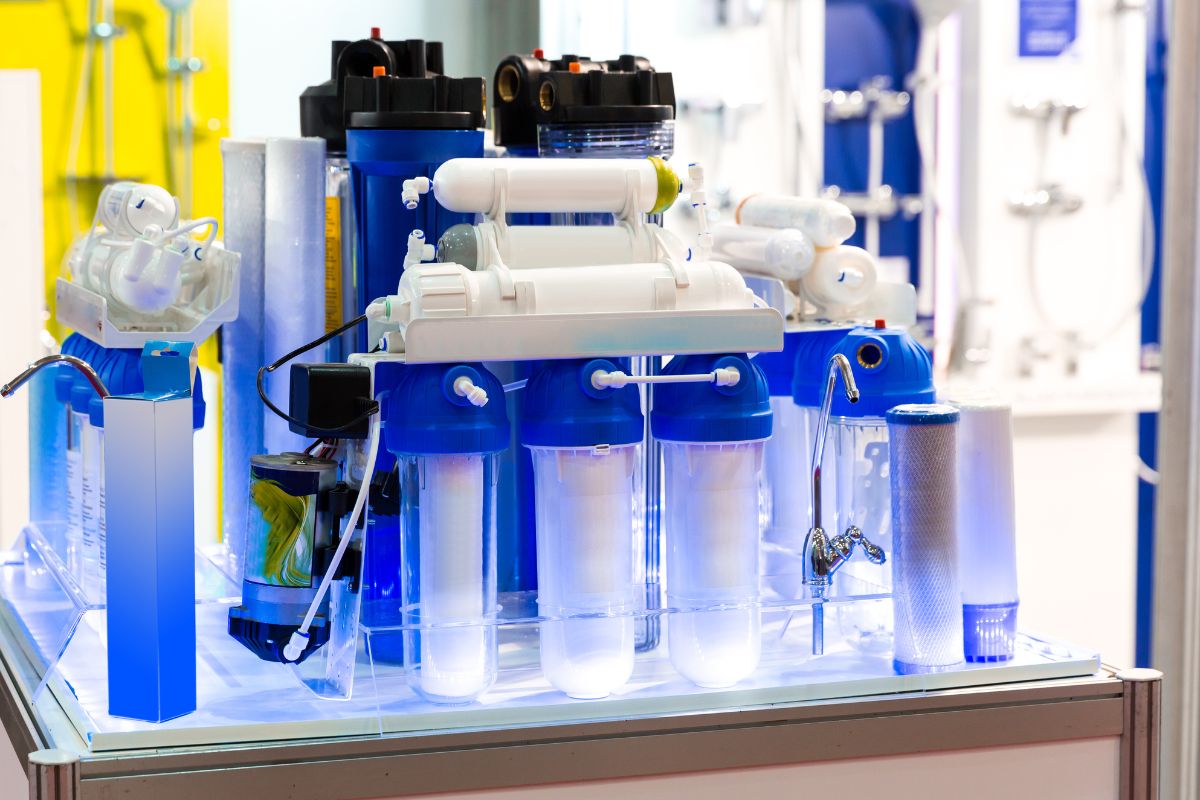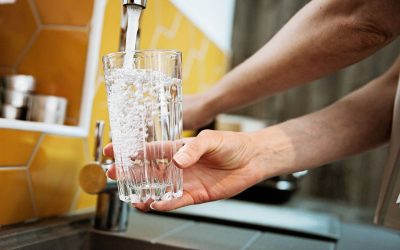Hard water is water that has a high mineral content. It is formed when water filters through limestone, gypsum or chalk. These deposits are largely made up of calcium and magnesium carbonates and bicarbonates and sulfates.
Though this may sound like something that you do not want to ingest, hard water is perfectly fine to drink, it is not dangerous although the excess minerals in the water may make the taste rather unpleasant.
Despite the unpleasant taste, hard water has been shown to have positive effects on the health of those who drink it. The calcium and magnesium in the water can have a protective effect when it comes to cardiovascular disease, this, however, is dose-dependent.
Contents
Why is hard water bad?
So you have read that hard water is perfectly safe to drink and can have health benefits, so I’m sure you are wondering. Why should I be fixing hard water?
Although it is not bad for your health, hard water can cause your hair and skin to dry out. The bigger impact hard water will have is on your kitchen, the biggest concern with hard water is the damage it will do to your house’s plumbing system.
A continuous flow of hard water containing a high mineral concentration will over time deposit trace amounts of minerals, which will eventually build up on pipes.
This process is known as scale build, it is a chalky mineral-based substance that will restrict the flow of water culminating in accelerated rusting which leads to burst pipes and that leads to you shilling out on repairs.
It is not just your appliances and pipes that will suffer the consequences of hard water; another rather annoying consequence of hard water is that it will leave a white residue on dishes, glassware and even your sink.
This may seem a small issue but even when hand washing anything affected by the residue you may still notice that there are still white spots from the soap and mineral deposits.
The final issue with hard water is that it will react with chemicals in laundry detergents. This will reduce the cleaning power and will accelerate the color fading on your clothes.
The stains left by the hard water will not simply come out with another wash as you are simply repeating the same process that stained it to begin with.
Hard water is especially an issue around clothes, we have already addressed the issue with staining but that is not the only issue you will face when hard water mixes with your clothes. Due to the residue of hard water trapping oil from the body, this will cause your clothes to feel stiff or even rough.
So we’ve discussed why hard water is a major issue in your home. Now, what can be done to treat it? Is it possible to change the type of water in your home from hard to soft?
Which Cities Have Hard Water?
Since most of the United States was once covered in an ancient sea, the concentration of limestone in the groundwater is high across the country. Fortunately, these areas aren’t necessarily coastal. Hard water can be found in many inland cities such as Las Vegas, Phoenix, Indianapolis, Minneapolis, Tampa, San Antonio and Tampa Bay.
If you’re unsure about your water quality, you can test it in your own home with a quality water hardness test kit.
How to treat hard water
Below you will find some helpful ways to manage or get rid of hard water.
Boil Hard Water
This will only work for ‘temporary’ hard water, this is water that mainly contains calcium bicarbonate. Boiling this water will precipitate the dissolved minerals out of the water, boiling is a quick and easy way for you to fix hard water for consumption.
However, this isn’t a solution for permanent hard water, this is due to permanent hard water containing dissolved calcium sulfate. Boiling will not remove the calcium sulfate.
Hard Water Cleaning Aid
This is the perfect method to remove ‘soap scum’ caused by hard water. Soap scum forms due to the water containing positively charged atoms, these atoms prevent the soap molecules from dissolving and they end up accumulating on the surfaces they were meant to clean.
To fix this issue use a cleaning formula that is designed for hard water. Use products that contain a solution that will counter the positive calcium atoms in the hard water. These formulas will make it easier to rinse away soap and thus prevent them from forming scum.
Washing Soda
Washing soda is perhaps the best technique for treating hard water. When doing your laundry you should be using washing soda, this is a type of chemical consisting of sodium carbonate. This chemical will help soften both types of hard water be it temporary or permanent.
This method rids the water of the dissolved calcium and magnesium that exist in hard water. Removing these minerals will cause the water to soften and will make it easier for soaps to lather up.
Distilled White Vinegar
So we have given you options to prevent the hard water from staining but what if it is too late and your clothes have already been stained?
Distilled vinegar is very acidic this will help combat the alkaline calcium that resides in hard water. Vinegar should only be used as a water softener, despite it removing the hard water. You wouldn’t want to drink water mixed with vinegar.
Vinegar will also help any dishes or glassware that have been stained, to fix these you should fill a bowl with vinegar and soak them for at least one hour. You can also spray vinegar on appliances and surfaces that have been affected so you can remove any spots or water film.
Install A Water Filter For Hard Water
If you’ve been wondering if you need a water filter for hardwater, you’re not alone. Fortunately, there are many different types of water filters available for the home. Water filters for hard water are also called water softeners.
The most common types of water softeners include a faucet water filter for fresh drinking water and a whole-house water filtration system. You may not be living in a city with hard water. For those embarking on a roadtrip, an RV water filter can be installed before you set off.
Final Thoughts
So there you have it, a list of solutions that can combat the destructive and annoying hard water. If you have only temporary hard water then boiling it may well be the best solution for you, however, if you have permanent hard water then we hope one of the solutions presented will aid you.
Be it wanting to prevent hard water stains, or how to remove them here we have listed some solutions.
Hard water will never cause you physical harm but if you are a homeowner you will know the pain of bills, so hopefully, now you can combat any potential harm hard water could do to your home.
